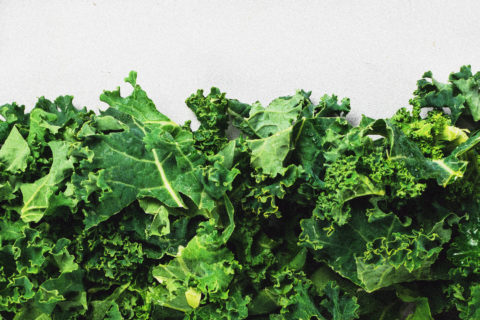Kale Made the Dirty Dozen List, but Should You Actually Drop It From Your Diet?
In case you missed it, kale (a.k.a. social media’s fave leafy green) ranked third on EWG’s notorious Dirty Dozen list of the most pesticide-contaminated fruits and veggies.
While this came as a total shock to most, Toronto-based holistic nutritionist Joy McCarthy wasn’t surprised. “Kale’s large surface makes it the perfect veggie to collect lots of pesticides,” says the Genuine Health ambassador.
According to the EWG report, 92 per cent of kale samples tested by the USDA contained two or more pesticide residues. It’s also worth noting that said samples underwent washing prior to testing, thus confirming that a simple douse in water won’t get rid of all pesticides.
So should drop kale from our diets?
According to McCarthy, no, you shouldn’t drop kale from your diet. “Eating kale—even if it’s conventionally farmed—is better than eating no kale,” she says. Of course, if it’s within your budget then opt for organic kale whenever possible. Another option, McCarthy says, is to buy flash frozen organic kale. “It’s usually the cheaper option and widely available.” And if you’re a DIY-er, good news: you can easily grow kale yourself. The hardy, leafy green can easily be planted in a garden or in a pot on your balcony.
Note: A simple wash won’t get rid of all of the pesticides.
This is because the pesticides aren’t just on the surface, says McCarthy. “Plus, if we’re about talking curly kale, it’s impossible to wash all residues off of every nook and cranny.” However, washing your fruits and veggies is ALWAYS better than not washing them at all, the Alliance of Food and Farming (a non-profit organization that aims to provide the public with credible information regarding their produce) advises. When rinsing, try using a brush to scrub your produce—just refrain from using soap. You can also toss out the exterior leaves of leafy veggies.
If you are still a little shook by the news, don’t sweat it.
Seriously. In fact, according to The Alliance for Food and Farming’s handy pesticide residue calculator, a woman can consume “18,615 servings of kale in one day without any effect, even if the kale has the highest pesticide residue recorded for kale by the USDA.” Mind. Blown. If you’re still skeptical, McCarthy suggests opting for other greens on EWG’s Clean 15 list, like broccoli, cabbage and asparagus. “Even though they don’t have the exact same nutritional profile, they include plenty of fibre and phytonutrients.”









